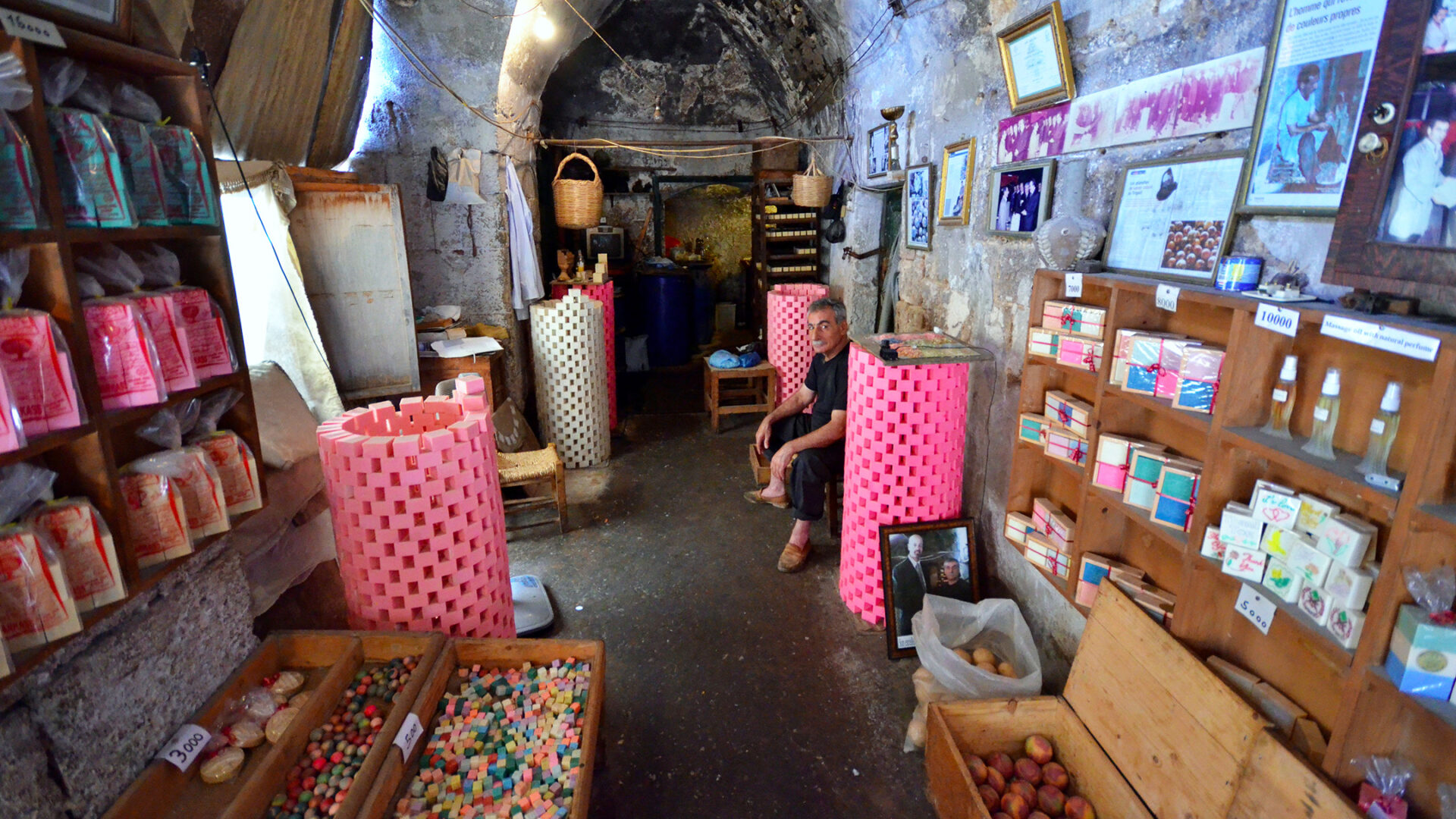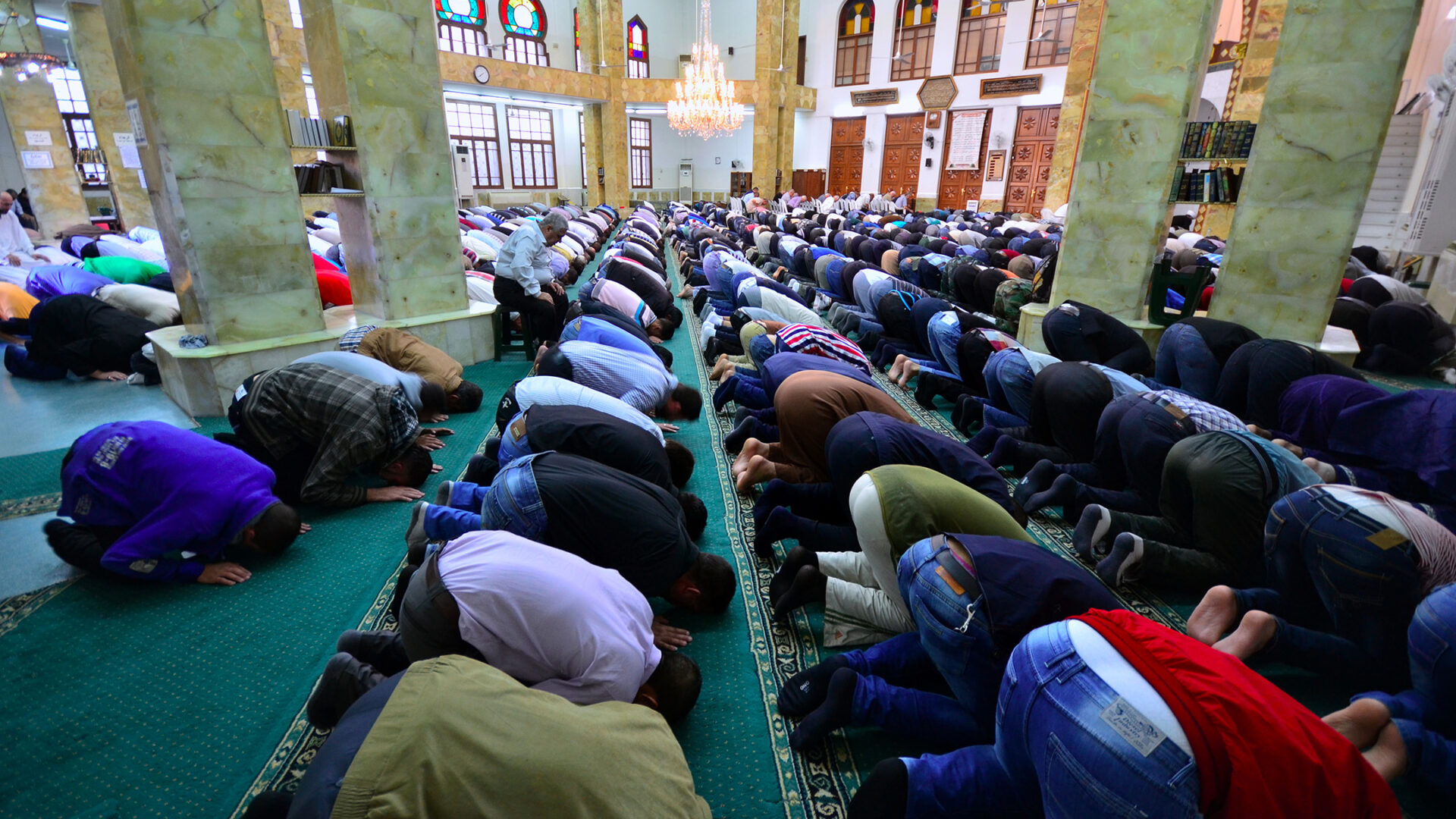The first thing that hits you as you step out onto a Tripoli street is the smell. Some say that our sense of smell is the sense most intimately connected with our emotions, and that might explain why so many people feel so strongly about this town. On a spring day the scent of orange blossom, “zahr el laymoun”, fills the air and mixes with the rich aroma of olive oil, lavender and jasmine wafting from the Sharkass factory.
The Sharkass soap factory
Established in 1803, Sharkass is Tripoli’s oldest olive oil soap factory or “atelier”, giving rise to a significant soap production industry concentrated in and around the city. Here you can find many kinds of natural and anti-allergenic soaps with wide ranging scents, from pine, to musk rose, to lemon perfumed olive oil soaps, often whimsically shaped to match their scents. Centuries after its foundation, the Sharkass soap factory remains a family business. Its current overseer, Mahmoud Sharkass says he learned his profession from his father, and his son, Ahmad, is already getting ready to take on his dad’s role when the time comes.

Al Sa’eh library
As your head stops spinning from the intoxicating perfumes in the air, you may head down one of the picturesque narrow alleys of “Saray al aatika”, to stumble upon another of the city’s hidden treasures, the “Al Sa’eh Library”. Founded in 1972 and moved to its current location in 1980, it is not only the oldest and largest bookstore in Tripoli, it is also the second largest in the whole of Lebanon. Father Ibrahim Sarrouj, who owns “Al Sa’eh Library”, keeps his treasure trove well stocked with books on all subjects, from politics, to philosophy and religion.
Al Mina’s fish market
Browsing through the “Al Sa’eh Library’s” many bookshelves can stir up quite an appetite. Luckily, Tripoli is full of places where you can indulge yourself with delicious delicacies, from the ubiquitous “hummus and fool” and Arabic sweets and pastries, to fresh seafood and fish straight out of the sea. Thanks to its exposure to the Mediterranean, the fishing industry here in Tripoli is considered the second most important commerce in the city. The people who live in the “Al Mina” neighborhood have been fishermen and seamen by trade for centuries.
There is a fish market in Al Mina that is famous throughout Lebanon for its wide variety and superb quality of fish. Once, on a Sunday morning, I went to shoot some film footage at the fish market. I remember, the place being filled with fishermen and buyers all bidding on the “catch of the day” as fervently as if they were bidding on paintings by Picasso, Rembrandt or Monet!
On a spring day the scent of orange blossom, “zahr el laymoun”, fills the air and mixes withthe rich aroma of olive oil, lavender and jasmine wafting from the Sharkass factory.
Rim Rafei
Eid al Adha festival
One of the many special moments you can spend here in Tripoli, is during the Eid al Adha festival. How I love Eid mornings, with every family in town gathering to celebrate this holy day. At dawn everyone goes to attend the Eid prayers. After that you start to hear the “Takbirat al Eid” prayer recited everywhere, spreading the joy of Eid and the holy feeling you get on this day. Eid al Adha, is the most busy day of the year for the town’s butchers, as the celebration of this day involves slaughtering a sheep. Usually every family slaughters a sheep, and distributes its meat to the family members and to the poor. Some of the meat is used to make delicious “Wara’ Einab” (stuffed grape leaves) later for lunch.
Yes, Tripoli has had its share of suffering, but when I let the city in through all my senses, the sight of its narrow alleys, the smell of soap and spices, the sound of the communal prayers, the taste of sea water in the air, the touch of the pavements beneath my feet, all tug at my heart, and I know that it will always belong to my broken beloved Tripoli.
